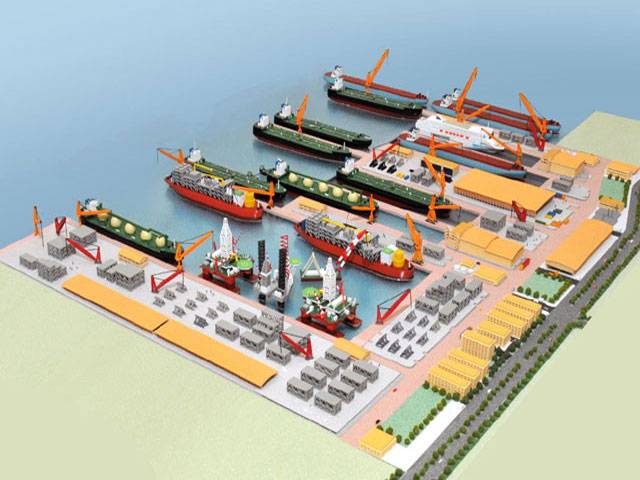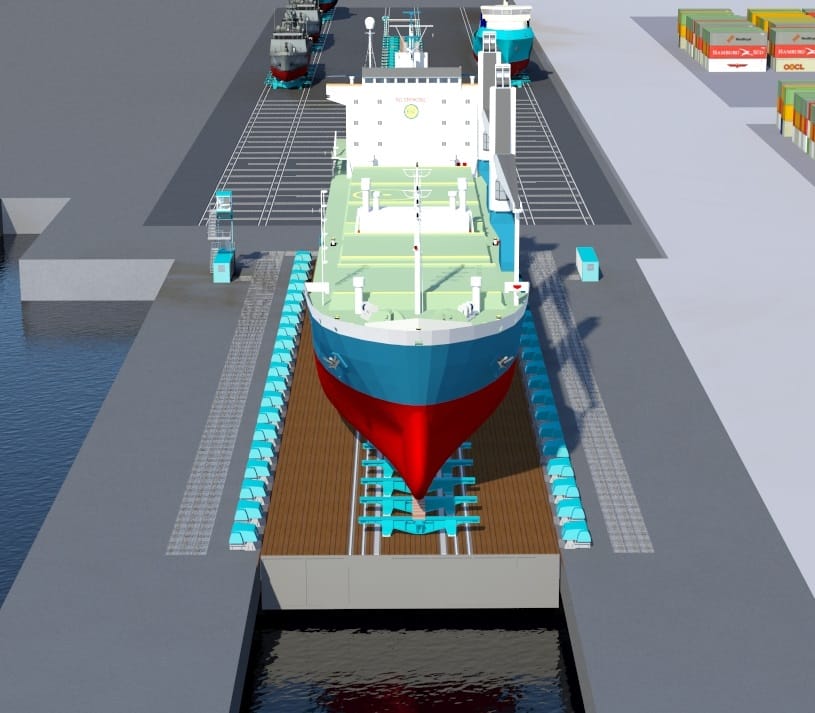You are using an out of date browser. It may not display this or other websites correctly.
You should upgrade or use an alternative browser.
You should upgrade or use an alternative browser.
China's overland Silk Road and Maritime Silk Road Thread
- Thread starter SampanViking
- Start date
timepass
Brigadier
The Balloki Power Plant is a 1,223 MW natural gas power plant currently under construction near ...
Groundbreaking was commenced on November 10, 2015, 1223 MW Balloki Power Project to be ‘fully functional’ in 2018. , .



Nikkei is actually more professional than most western news outlet. More factual and balance and less sensationalist than any major western counterpart.
December 31, 2017 1:30 am JST
Japan floats business aid idea for China's Belt and Road plan
Tokyo hopes proposal will put broader bilateral relationship on track
Nikkei staff writers

Japanese Prime Minister Shinzo Abe greets Chinese President Xi Jinping before their bilateral meeting in Danang, Vietnam, on Nov. 11 on the sidelines of the Asia Pacific Economic Cooperation forum. © Kyodo
TOKYO -- The Japanese government hopes to warm chilly relations with China by offering to help with Beijing's Belt and Road Initiative, an effort to forge stronger economic links between it and countries to the west, extending as far as Europe.
Under the plan, Japan would extend financial assistance to Japanese companies doing business with China as part of the initiative, on a case-by-case basis.
If Chinese President Xi Jinping visits Japan, possibly in 2019, Tokyo hopes the two sides will sign a "fifth document" to add to the four diplomatic agreements that form the basis of bilateral relations.
In recent months, senior Japanese officials, including Prime Minister Shinzo Abe and Chief Cabinet Secretary Yoshihide Suga, have warmed to the idea of participating in the Belt and Road Initiative, saying Japan would like to take part if conditions are right, and if it helps build peace and prosperity in the region.
The plan to improve ties with China, however, does not include a time frame for Tokyo to join the Beijing-led Asian Infrastructure Investment Bank.
Under the proposed Belt and Road Initiative guidelines, the Japanese government will provide financial assistance to companies working in environmental and energy-conservation technology, industrial development in third countries, improving distribution systems and other areas.

Financial support will be provided through the Japan Bank for International Cooperation, Nippon Export and Investment Insurance and other channels. Lenders will provide capital, taking into account project transparency, profitability and the economic impact on local economies. They will also ensure that the aid does not go to military use.
Turn the page
Japan has blown hot and cold over China's economic ambitions in Asia. It has taken some steps under what it calls the "free and open Indo-Pacific strategy" to counter Beijing's growing strategic influence, but now says that effort and China's infrastructure-building under the Belt and Road Initiative are not at odds.
Tokyo believes strengthening ties with the world's second-largest economy will benefit the Japanese economy and contribute to regional security. Sino-Japanese relations have been strained for the past half-decade over tensions in the East China Sea. In 2010 a Chinese trawler operating within 12 nautical miles of the Japanese-administered Senkaku Islands collided with Japanese patrol boats. The detention of the Chinese ship's captain triggered a major diplomatic dispute.
Tensions further rose when Japan nationalized the Senkaku Islands, which China claims and calls Diaoyu, in 2012.
In the face of the growing threat from North Korea, Japan feels it is vital to keep in close contact with China, which is a sometime backer of the rogue state.
The Japanese government hopes to announce specific plans for joint projects between the two sides when Chinese Premier Li Keqiang visits Japan for a trilateral summit between Japan, China and South Korea, likely in April 2018. The projects could include joint work on solar power generation. More broadly, Japan and China have already begun work to help companies from both countries to find business partners.
Tokyo hopes to arrange reciprocal visits by Xi and Abe soon. Abe would like to visit China next year as the two countries observe the 40th anniversary of the signing of the Japan-China peace and friendship treaty, and he plans to invite Xi to visit Japan, possibly in 2019, when Japan will host a Group of 20 summit.
If the relationship has improved sufficiently, Japan hopes to sign the fifth diplomatic document during Xi's visit. The four key documents underpinning the bilateral relationship are: the Japan-China joint communique of 1972, the 1978 peace and friendship treaty, the 1998 joint declaration and the 2008 joint statement, which affirmed the promotion of a "mutually beneficial relationship based on common strategic interests."
December 31, 2017 1:30 am JST
Japan floats business aid idea for China's Belt and Road plan
Tokyo hopes proposal will put broader bilateral relationship on track
Nikkei staff writers

Japanese Prime Minister Shinzo Abe greets Chinese President Xi Jinping before their bilateral meeting in Danang, Vietnam, on Nov. 11 on the sidelines of the Asia Pacific Economic Cooperation forum. © Kyodo
TOKYO -- The Japanese government hopes to warm chilly relations with China by offering to help with Beijing's Belt and Road Initiative, an effort to forge stronger economic links between it and countries to the west, extending as far as Europe.
Under the plan, Japan would extend financial assistance to Japanese companies doing business with China as part of the initiative, on a case-by-case basis.
If Chinese President Xi Jinping visits Japan, possibly in 2019, Tokyo hopes the two sides will sign a "fifth document" to add to the four diplomatic agreements that form the basis of bilateral relations.
In recent months, senior Japanese officials, including Prime Minister Shinzo Abe and Chief Cabinet Secretary Yoshihide Suga, have warmed to the idea of participating in the Belt and Road Initiative, saying Japan would like to take part if conditions are right, and if it helps build peace and prosperity in the region.
The plan to improve ties with China, however, does not include a time frame for Tokyo to join the Beijing-led Asian Infrastructure Investment Bank.
Under the proposed Belt and Road Initiative guidelines, the Japanese government will provide financial assistance to companies working in environmental and energy-conservation technology, industrial development in third countries, improving distribution systems and other areas.

Financial support will be provided through the Japan Bank for International Cooperation, Nippon Export and Investment Insurance and other channels. Lenders will provide capital, taking into account project transparency, profitability and the economic impact on local economies. They will also ensure that the aid does not go to military use.
Turn the page
Japan has blown hot and cold over China's economic ambitions in Asia. It has taken some steps under what it calls the "free and open Indo-Pacific strategy" to counter Beijing's growing strategic influence, but now says that effort and China's infrastructure-building under the Belt and Road Initiative are not at odds.
Tokyo believes strengthening ties with the world's second-largest economy will benefit the Japanese economy and contribute to regional security. Sino-Japanese relations have been strained for the past half-decade over tensions in the East China Sea. In 2010 a Chinese trawler operating within 12 nautical miles of the Japanese-administered Senkaku Islands collided with Japanese patrol boats. The detention of the Chinese ship's captain triggered a major diplomatic dispute.
Tensions further rose when Japan nationalized the Senkaku Islands, which China claims and calls Diaoyu, in 2012.
In the face of the growing threat from North Korea, Japan feels it is vital to keep in close contact with China, which is a sometime backer of the rogue state.
The Japanese government hopes to announce specific plans for joint projects between the two sides when Chinese Premier Li Keqiang visits Japan for a trilateral summit between Japan, China and South Korea, likely in April 2018. The projects could include joint work on solar power generation. More broadly, Japan and China have already begun work to help companies from both countries to find business partners.
Tokyo hopes to arrange reciprocal visits by Xi and Abe soon. Abe would like to visit China next year as the two countries observe the 40th anniversary of the signing of the Japan-China peace and friendship treaty, and he plans to invite Xi to visit Japan, possibly in 2019, when Japan will host a Group of 20 summit.
If the relationship has improved sufficiently, Japan hopes to sign the fifth diplomatic document during Xi's visit. The four key documents underpinning the bilateral relationship are: the Japan-China joint communique of 1972, the 1978 peace and friendship treaty, the 1998 joint declaration and the 2008 joint statement, which affirmed the promotion of a "mutually beneficial relationship based on common strategic interests."
Last edited:
timepass
Brigadier
Shipyard project to start shortly, says Chief of Naval Staff....
KARACHI: The Chief of the Naval Staff Zafar Mahmood Abbasi on Thursday announced the establishment of shipyard in Gwadar, saying that the project would commence shortly and will be completed in three to five years.

Addressing "PN-Industrial Seminar" at Pakistan Navy Engineering College, Admiral Abbasi said that the global scenario in general and regional geo-political situation in particular warranted concrete and long-term policy decisions for achieving self-reliance on many fronts.
He added that in the present era of globalization and technological innovation, we need to join hands and create collaborations and partnerships that can add value to our national economy and strengthen our national defence.
He said; “Technical know-how and basic industrial infrastructure to support research and development was available in the country. However, it is time to integrate and optimise these facilities with a view to further strengthen the process of self-reliance.”

The naval chief further emphasised to increase the number of ports in the country to cater to future requirements and maritime challenges. He said that Pakistan Navy was the custodian of blue economy and maritime awareness was the need of the hour in the context of contemporary maritime affairs.
He also said that through meaningful engagement of the private sector and in the presence of a well-articulated strategy, Pakistan would attain complete self-reliance through untiring efforts.
The seminar was attended by a large number of PN officers, representatives of local industries and prominent members of the academia....
timepass
Brigadier
CPEC Eastern Route: Gojra-Shorkot section 62 km will be operational for traffic March 2018....
Construction of the 62-kilometer (km) Gojra - Shorkot section of Faisalabad-Multan motorway is in full swing and Shorkot Khaniwal section will be operational in July 2018.



timepass
Brigadier
: 392 km (M-5) - under construction.04 out of 07 sections 250 km to be complete by June 2018 while the whole project (M-5) will be completed in 2019.



timepass
Brigadier
: Under construction Junction of Two Motorways 236 Km - M-4 & 230 Km Lahore Multan Motorway M-near - location...




timepass
Brigadier
653 Km N-10 near Ormara. This 653 km long road joins port with .









